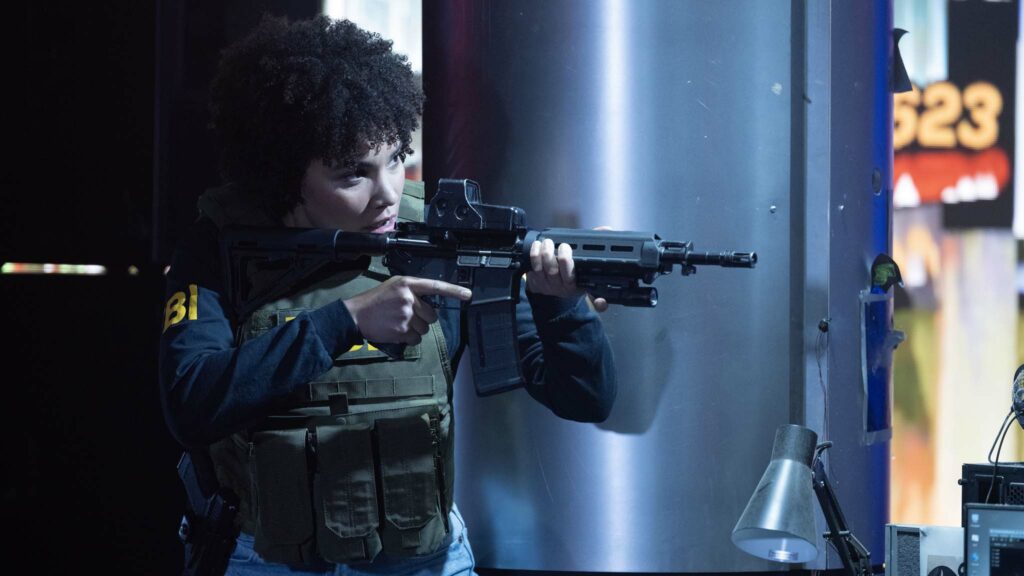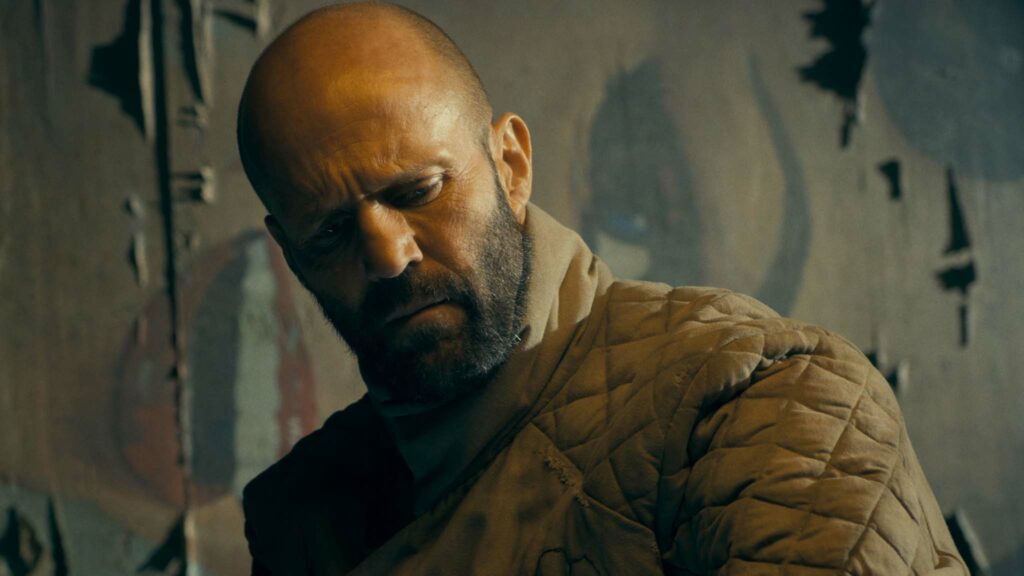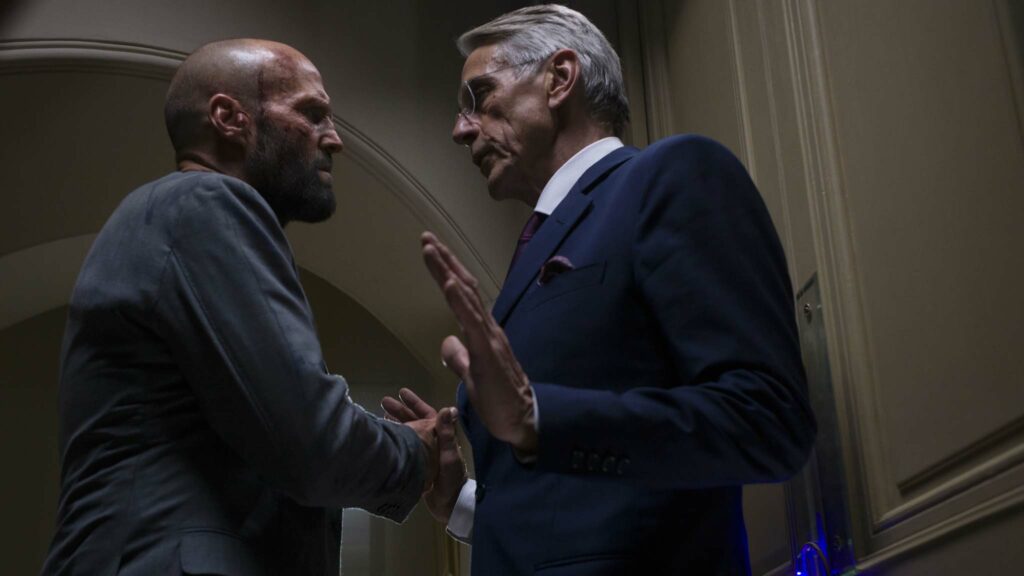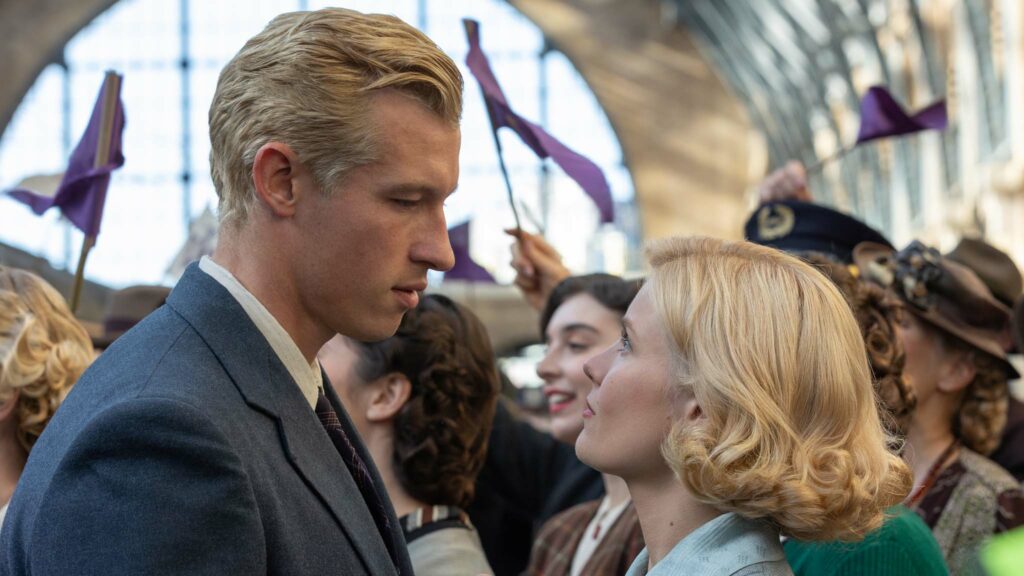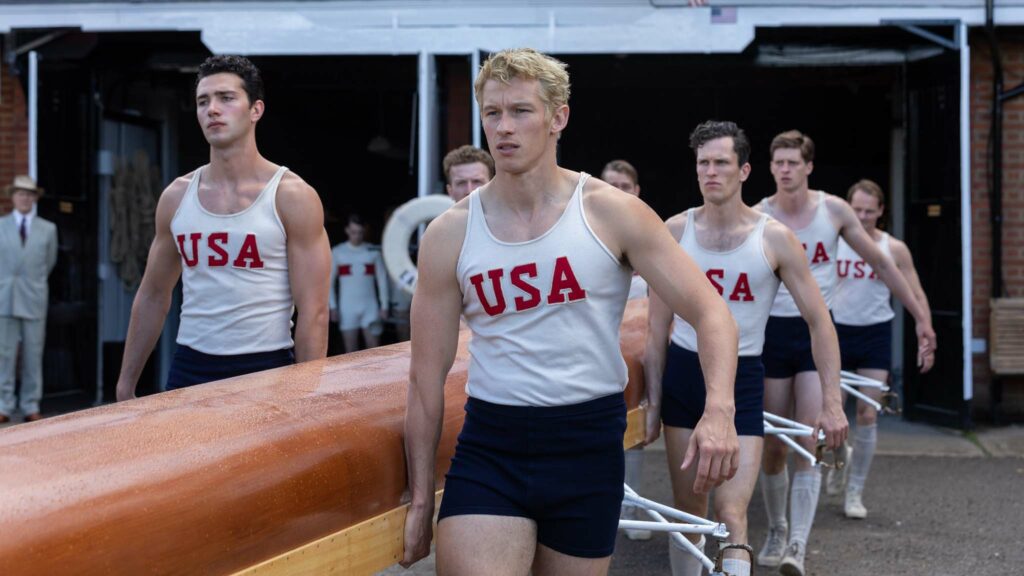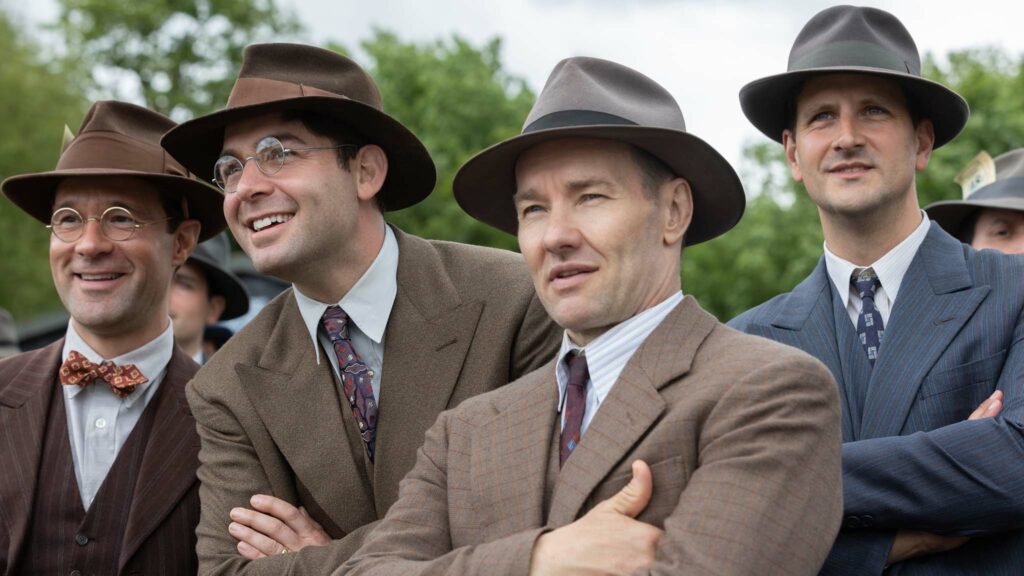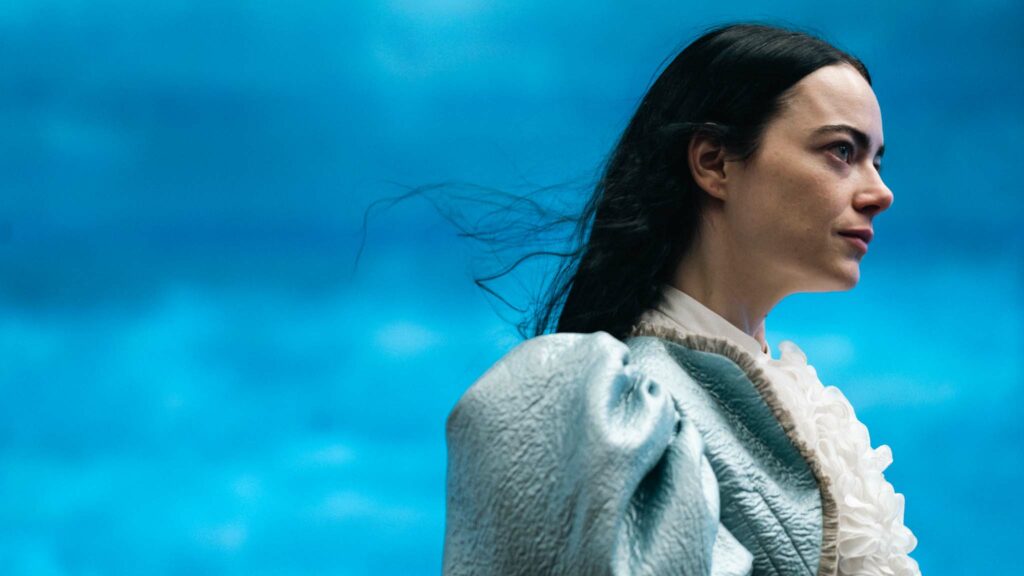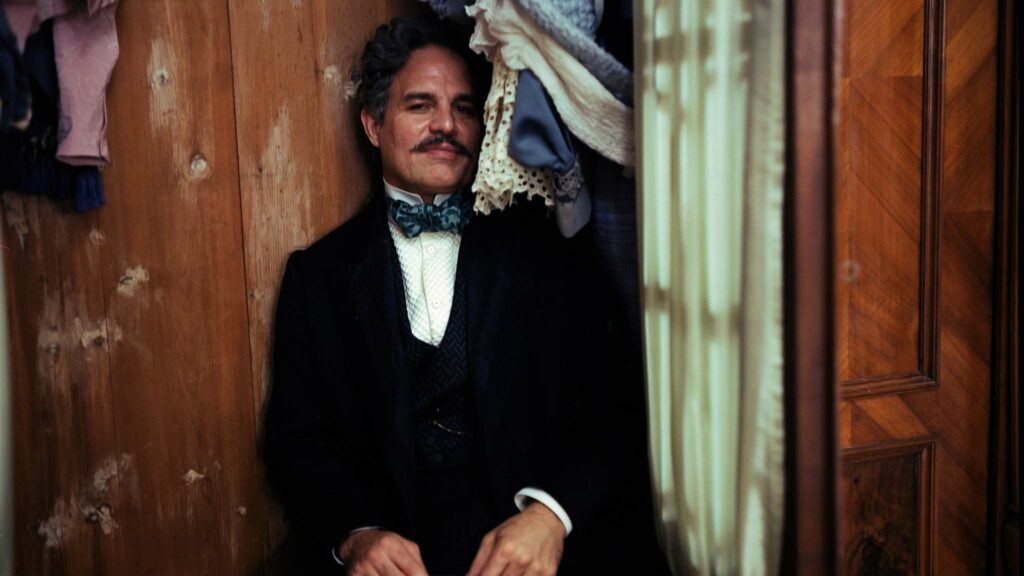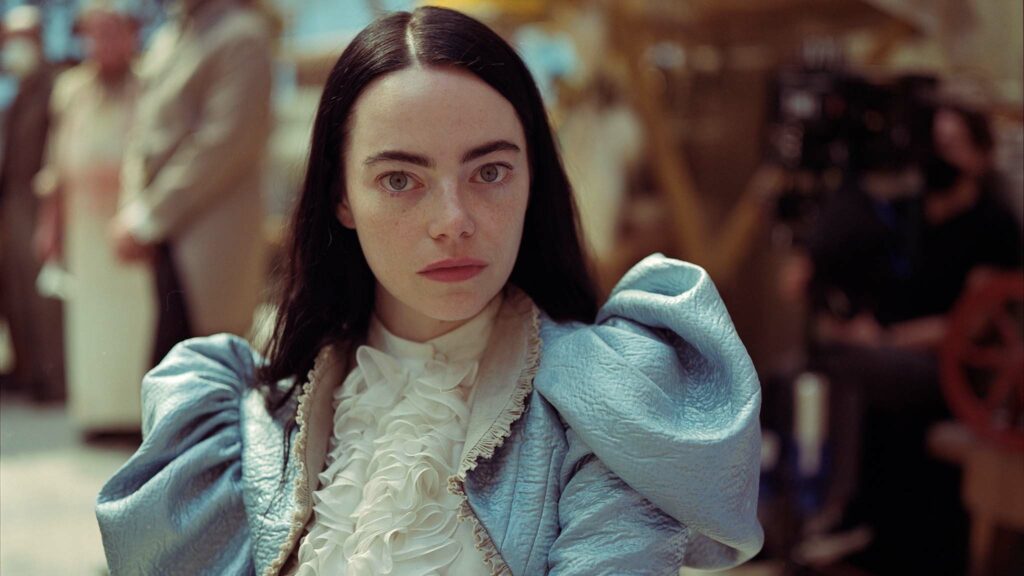Action
The Beekeeper (15)
Review: The combustibility of pure organic honey is tested in director David Ayer’s brutal revenge thriller starring Jason Statham as a former member of a government-sanctioned kill squad codenamed the Beekeepers, who “protect the hive” from threats to national security. A cruel phishing scam that sets the film’s rickety plot in motion is rudely interrupted by a glaring continuity error as screenwriter Kurt Wimmer rages against crypto culture, political corruption and data protection. Stilted and unnatural dialogue hobbles dramatic momentum.
When Statham’s glowering hero razes the offices of a heartless call centre, the Machiavellian owner tells a goon to: “Get a wrecking crew together and go GoodFellas on him!” The script forgives Statham’s questionable Americanese during an early exchange between the leading man and co-star Emmy Raver-Lampman. “There’s some British Isles hiding in your accent,” she observes cutely. It’s a different and more compelling story when Statham communicates with his fists and feet. Working closely with fight choreographer Jeremy Marinas, the Derbyshire-born star draws on his extensive martial arts training to perform bone-crunching stunts including frenetic fisticuffs with legions of heavily armed adversaries. If he doesn’t speak, Statham is utterly believable as a killing machine with an unwavering moral compass.
Enigmatic loner Adam Clay (Statham) enjoys a solitary life in the rolling green hills of Springfield, Massachusetts, far removed from his clandestine past as a Beekeeper. Now, Adam diligently tends six real hives and harvests the honey when he isn’t calmly removing a hornet’s nest from the barn of his neighbour, retired teacher Mrs Parker (Phylicia Rashad). “You’re a blessing,” she coos during their one brief on-screen interaction, intended to demonstrate a deep emotional bond between virtual strangers.
Mrs Parker commits suicide a few hours after a malware pop-up phishing scam plunders her life savings, pension and the children’s charity fund she manages. “Someone hurts an older person, sometimes they’re left to face the hornets alone,” growls Adam to Mrs Parker’s distraught daughter, Verona (Raver-Lampman), who happens to be an FBI agent. Adam promptly comes out of retirement to avenge Mrs Parker and he follows the money trail back to obnoxious self-made millionaire Derek Danforth (Josh Hutcherson), whose company Danforth Enterprises has hired former FBI director Wallace Westwyld (Jeremy Irons) to protect its interests. The body count rises and Verona and FBI partner Agent Wiley (Bobby Naderi) investigate.
The Beekeeper crudely welds together thrilling, propulsive and graphically violent action sequences with hurried character development and clunky sermons from Statham’s avenging angel about heartless online predators. On-screen repartee with Raver-Lampman falls flat but Irons is always reliable when it comes to chewing scenery and a little screen time goes a long way for Minnie Driver and Jemma Redgrave as powerful women in high political office. The buzz on Ayer’s film is merely ho-hum.
Find The Beekeeper in the cinemas
Drama
The Boys In The Boat (12A)
Review: A rousing true story of Depression-era underdogs pulling together as a rowing team for a shot at glory at the 1936 Summer Olympics in Berlin is ambrosia for an emotionally led director like George Clooney. Based on Daniel James Brown’s book, The Boys In The Boat is an unabashedly old-fashioned drama of triumph against overwhelming odds that luxuriates in chocolate box images of perfectly synchronised oars scything through rippling water bathed in golden sun. The physically and mentally gruelling sport of rowing isn’t obviously cinematic. Blistered hands and a broken oar feel somehow underpowered next to a slow-motion knockout punch in a boxing ring, a last-gasp goal or touchdown on a football pitch or a jockey winning by a nose in the final furlong.
Clooney and editor Tanya Swerling work hard to energise sequences on the water, capturing sweat-slathered exertions of a strapping ensemble cast led by London-born Callum Turner as a motherless loner, who is abandoned by his father at the age of 14 for a new family, and schools himself to be self-reliant. It’s sink or swim and Turner’s stoic character does the latter, providing an instantly endearing focal point on which screenwriter Mark L Smith can hang touching scenes of self-empowerment, a flimsy romantic subplot and some heavy-handed class warfare.
The Depression bites hard in 1936 Seattle, Washington, and 22-year-old Joe Rantz (Turner) lives hand to mouth in a burnt-out car while he studies engineering at the University of Washington alongside classmate Roger Morris (Sam Strike) and childhood crush Joyce Simdars (Hadley Robinson). With a two-week deadline to pay his outstanding tuition fees, Joe responds to an advert promising free lodging and part-time employment to any young man who wins a coveted spot on the university’s rowing team under Coach Al Ulbrickson (Joel Edgerton) and his deputies, coaches Bolles (James Wolk) and Brown (Dominic Tighe).
Desperation propels Joe to the brink of physical exhaustion and he secures seat two in the junior boat with Roger at the bow and bombastic cox Bobby Moch (Luke Slattery) barking orders at the stern. Eyes quickly turn to the forthcoming Poughkeepsie Regatta which determines the university boat that will proudly represent Team USA at the impending Olympics.
The Boys In The Boat maintains a steady stroke rate as young dreamers are whipped into shape with a conventional training montage before they draw strength from fraternal bonds to power through viral infection and self-doubt. Thinly written female characters exist solely to support men’s sporting ambitions and cheer from the sidelines. Clooney hits each predictable emotional beat and he builds to a grandstand finish that advocates loudly for guts and brawn to overcome privilege and fascism by the finish line.
Find The Boys In The Boat in the cinemas
Comedy
Poor Things (18)
Review: An international dream team spearheaded by Greek director Yorgos Lanthimos, Australian screenwriter Tony McNamara, Irish cinematographer Robbie Ryan and American actress Emma Stone reunites after the Oscar-winning glory of The Favourite for a deranged coming-of-age fairy tale that lambasts the treatment of 19th-century women. Torn from the pages of Alasdair Gray’s novel, Poor Things introduces audiences to a fantastical medical experiment christened Bella Baxter. This unstoppable whirling dervish, portrayed with jaw-dropping gusto by Stone, has been bequeathed life by transplanting the mind of a child into an adult body.
McNamara’s deliciously biting and frequently hilarious script unleashes Bella on a sexually repressed Victorian-era society that believes women should be seen, admired but not heard. Unlike her peers, the film’s exuberant heroine isn’t suffocated by tightly corseted conventions of the period. Bella doesn’t comprehend self-censorship so when the piercing cries of a mewling infant disturb her calm, she doesn’t hesitate to voice her displeasure: “I must punch that baby!”
Stone’s fearless, virtuoso performance defies superlatives. She uses subtle changes in language fluency, posture and movement to illustrate her character’s white-knuckle joyride from infancy to maturity in artfully staged vignettes of impressive physical and verbal comedy. Full-frontal nudity becomes commonplace by the end credits. Mark Ruffalo demonstrates fine comic timing in support as a hedonistic, moustachioed dandy while Willem Dafoe’s Scottish accent (appropriated from Gray’s book) treks leisurely around the Celtic diaspora. Production design of gargantuan physical sets is ravishing while Ryan’s inventive camerawork captures lavish costumes in their glory, including sparing use of a fish-eye lens to amp up the wonderful weirdness.
Unorthodox scientist Dr Godwin Baxter (Dafoe) reclaims the near-lifeless body of a pregnant woman, Victoria Blessington (Stone), from a river after she throws herself off a bridge. The madcap medic christens his Frankenstein-esque creation Bella and charts his ward’s emotional and psychological development including the moment she discovers the art of self-pleasure with the aid of fruit. “Bella discover happy when she want,” she whoops. The scientist’s devoted student, Max McCandles (Ramy Youssef), is bewitched by Bella and he assists Baxter in closely monitoring her interactions. Alas, Bella lavishes her affection on rakish lawyer Duncan Wedderburn (Ruffalo) and he spirits her away on a globe-trotting adventure, far removed from Baxter’s tender care.
Poor Things is tightly handcuffed to Stone’s extraordinary performance. She commits ferociously and wholeheartedly to her portrayal of wide-eyed innocence and richly deserves to join an elite club of two-time Oscar winners. Lanthimos’s impeccably furnished ship feels a little rudderless in the middle hour when Bella and Duncan take to the high seas but after the characters make land again, narrative thrust increases. Brilliantly and breathlessly bonkers but not for the faint of heart.
Find Poor Things in the cinemas


